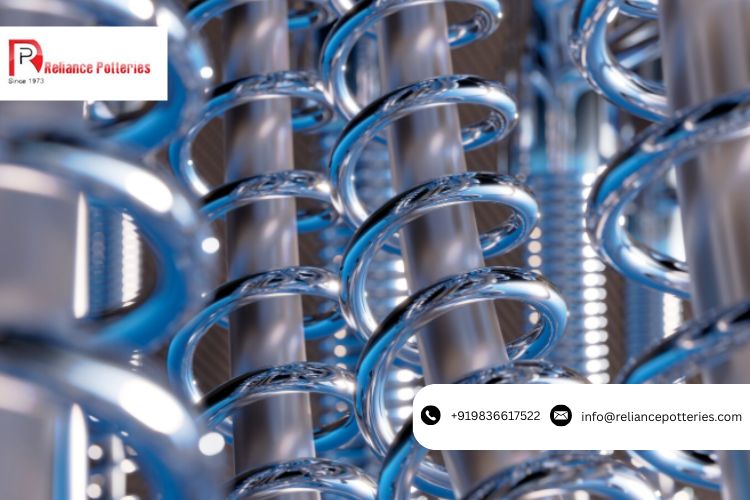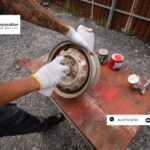Ever wondered what keeps your electricity lines running safely through storms and scorching heat? Behind every reliable power connection lies the quiet efficiency of high-quality electrical insulators. India’s industrial growth, renewable energy projects, and smart grid expansions have made Electrical Insulator Manufacturers in India some of the most vital contributors to the power sector in 2025.
The Rising Demand for Advanced Insulators
As India races toward becoming a $5 trillion economy, electricity infrastructure is expanding rapidly. According to the Ministry of Power, Government of India, the nation’s power generation capacity surpassed 430 GW in 2024, with renewable sources forming nearly 40% of that mix. Such an energy surge demands superior insulators that can endure higher voltages, harsh weather, and corrosive environments.
Modern electrical insulators are no longer simple porcelain pieces; they are precision-engineered components that ensure uninterrupted current flow, worker safety, and system stability. From substations to high-voltage transmission lines, their quality defines the reliability of the entire grid.
Top Electrical Insulator Manufacturers in India (2025)
Here’s a closer look at the leading names that are shaping India’s electrical insulation industry this year:
1. Reliance Potteries Pvt. Ltd.
With decades of expertise in ceramic technology and electrical engineering, Reliance Potteries is known for manufacturing premium-grade insulators for transmission and distribution networks. Their portfolio spans low, medium, and high-voltage applications, earning trust from power utilities and EPC contractors across India and abroad.
2. Aditya Birla Insulators (Hindalco Industries)
One of the world’s largest insulator producers, Aditya Birla Insulators combines advanced ceramics with cutting-edge production facilities. They’re known for their innovation in polymer and composite insulators, designed to perform even in extreme humidity and industrial pollution zones.
3. BHEL (Bharat Heavy Electricals Limited)
BHEL manufactures a wide range of porcelain and composite insulators, serving major power projects and public sector installations. Their consistent R&D investment ensures strong resistance against mechanical stress and voltage surges.
4. Modern Insulators Ltd., Abu Road
As one of India’s oldest and most diversified insulator manufacturers, Modern Insulators offers a vast array of solid core, disc, and pin-type insulators. Their products are known for exceptional mechanical strength and surface glaze—essential for long-term performance in high-pollution areas.
Key Products Defining India’s Power Infrastructure
The success of these manufacturers lies not only in scale but also in their specialization across diverse insulator categories. Some notable product lines include:
- Porcelain and Ceramic Insulators: Ideal for high-voltage transmission lines and substations due to their high dielectric strength.
- Polymer and Composite Insulators: Lightweight, weather-resistant alternatives that reduce maintenance costs.
- Transformer Bushings: Critical for maintaining insulation between live conductors and grounded transformer tanks.
India’s position as a reliable Transformer Bushing Manufacturer is strengthening, thanks to indigenous R&D and export-ready production standards. These bushings now meet stringent international quality certifications like IEC and ANSI.
Technological Trends Redefining the Sector
Electrical insulator manufacturing in India is undergoing a quiet revolution, shaped by sustainability goals and technological innovation. Here are some defining trends in 2025:
- Smart Monitoring: Sensors embedded in insulators allow real-time monitoring of temperature, humidity, and leakage current.
- Green Ceramics: Manufacturers are using energy-efficient kilns and recyclable raw materials to reduce emissions.
- Custom Engineering: Tailored designs for renewable power projects, like solar farms and offshore wind grids, are becoming mainstream.
Companies like Reliance Potteries are also emerging as leading Conical Support Insulators Supplier in India, catering to the electrostatic precipitator (ESP) segment used in industrial filtration systems.
Precision Products Powering Performance
Beyond conventional insulators, high-end categories like Solid Core Insulators Manufacturer and FRP Shaft Insulators Manufacturer are driving technological breakthroughs. These components ensure reliable insulation in compact switchgear, heavy-duty transformers, and emission control systems—areas where precision and performance matter most.
Why Indian Insulator Manufacturers Are Gaining Global Attention
India’s reputation for quality manufacturing, coupled with competitive pricing and skilled labor, makes its insulator industry globally attractive. Additionally, the government’s “Make in India” initiative has boosted domestic innovation and export readiness. Indian companies are now supplying to markets in Europe, Africa, and Southeast Asia with proven reliability.
- Competitive Edge: Lower production costs without compromising quality standards.
- Skilled Workforce: A strong engineering base ensures precise manufacturing and testing.
- Global Certifications: Many Indian suppliers hold ISO, IEC, and CE accreditations, building international trust.
FAQs on Electrical Insulator Manufacturers in India
1. Which types of insulators are most widely used in India?
Porcelain and polymer insulators dominate the market, used extensively in power transmission and distribution networks across India.
2. What are the advantages of polymer insulators over traditional ones?
Polymer insulators are lightweight, weather-resistant, and require less maintenance compared to porcelain, making them ideal for high-voltage lines.
3. Are Indian insulator manufacturers export-ready?
Yes, most leading manufacturers comply with international standards such as IEC and ANSI, exporting products to multiple global markets.
4. How do insulators support renewable energy systems?
They ensure safe power transmission in solar and wind installations, preventing energy losses and maintaining system integrity in variable climates.
Also Read: Fire-Resistant Insulators: Safety for High-Rise and Tunnel Work
Final Thoughts
The electrical insulator industry in India is no longer just about reliability—it’s about innovation, sustainability, and performance. As the nation electrifies faster than ever, these manufacturers form the invisible yet essential backbone of its power future.
Blog Development Credits:
This blog was conceptualized and refined by Reliance Potteries, developed through expert insights and enhanced using advanced AI-assisted research for better accuracy and SEO performance.



